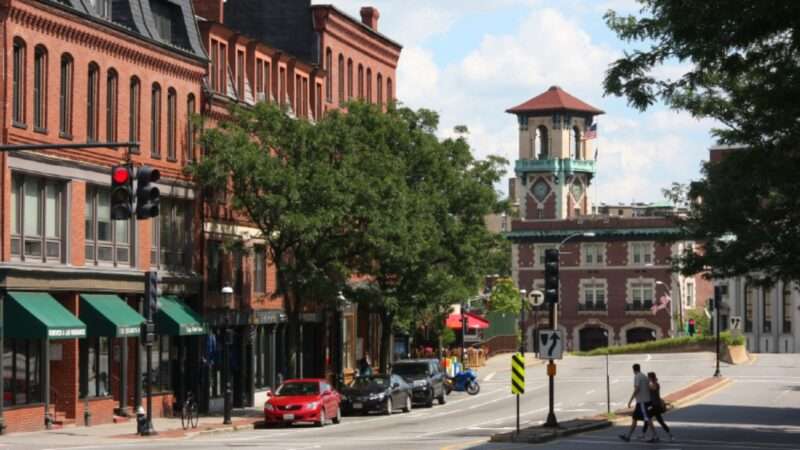
Last month, New Zealand scrapped a law that would have gradually prohibited tobacco products by banning sales to anyone born after 2008. But Brookline, a wealthy Boston suburb, will implement a similar scheme now that the Supreme Judicial Court of Massachusetts (SJC) has cleared the way.
Brookline's bylaw, which bans sales of "tobacco or e-cigarette products" to anyone born after 1999, is unlikely to have much practical impact, since the town is surrounded by municipalities where such sales remain legal. But it reflects a broader transition from regulation to prohibition among progressives who seem to have forgotten the lessons of the war on drugs.
The local merchants who challenged Brookline's ban argued that it was preempted by a state law that sets 21 as the minimum purchase age for tobacco products. They also claimed the bylaw violates the Massachusetts Constitution's guarantee of equal protection by arbitrarily discriminating against adults based on their birthdates.
The SJC rejected both arguments in a decision published on Friday. The court concluded that state legislators had left local officials free to impose additional sales restrictions. And since birthdate-based distinctions do not involve "a suspect classification," it said, Brookline's bylaw is constitutional because it is "rationally related to the town's legitimate interest in mitigating tobacco use overall and in particular by minors."
The striking aspect of Brookline's law, of course, is that it applies to adults as well as minors. It currently covers residents in their 20s and eventually will apply to middle-aged and elderly consumers as well.
Since anyone 21 or older who wants to buy tobacco or vaping products can still legally do so across the border in Boston, Cambridge, or Newton, Brookline's ban looks more like an exercise in virtue signaling than a serious attempt to reduce consumption. The same could be said of the outright bans on tobacco sales that two other wealthy and supposedly enlightened enclaves, Beverly Hills and Manhattan Beach, enacted in 2019 and 2020, respectively.
The Beverly Hills ban makes exceptions for hotels and cigar lounges, and both cities border jurisdictions where tobacco sales are still allowed. But even as moral statements, these edicts are flagrantly illiberal, standing for the proposition that adults cannot be trusted to decide for themselves which psychoactive substances they want to consume.
Beverly Hills and Manhattan Beach also prohibit marijuana sales, which are allowed under a California law that authorizes local bans. But they continue to tolerate liquor sales, and so does Brookline, where you also can legally buy marijuana.
The details may vary, but the busybody impulse is consistent. And the consequences of that impulse can be seen in Massachusetts, which has prohibited sales of flavored tobacco or vaping products since 2019, stimulating sales in neighboring states, black-market activity, and criminal prosecutions.
Cigarette smuggling spurred by high state taxes is a longstanding phenomenon, and the flavor restrictions that some jurisdictions have imposed compound that problem. Worse, the Food and Drug Administration plans to ban menthol cigarettes and limit nicotine content, and it seems determined to erase nearly all of the vaping industry by refusing to approve products in the flavors that former smokers overwhelmingly prefer.
Such policies hurt consumers by depriving them of products they want and driving them toward shady suppliers whose offerings may pose unanticipated risks. Prohibition also invites criminalization, which is why the American Civil Liberties Union opposes the menthol ban.
"Policies that amount to prohibition for adults will have serious racial justice implications," the organization warned in a 2021 letter to Secretary of Health and Human Services Xavier Becerra. "Such a ban will trigger criminal penalties, which will disproportionately impact people of color, as well as prioritize criminalization over public health and harm reduction. A ban will also lead to unconstitutional policing and other negative interactions with local law enforcement."
Progressives commonly recognize such problems in the context of the war on drugs. Expanding that war to include tobacco is bound to magnify them.
© Copyright 2024 by Creators Syndicate Inc.
The post Expanding the Drug War To Include Tobacco Would Be a Big Mistake appeared first on Reason.com.







